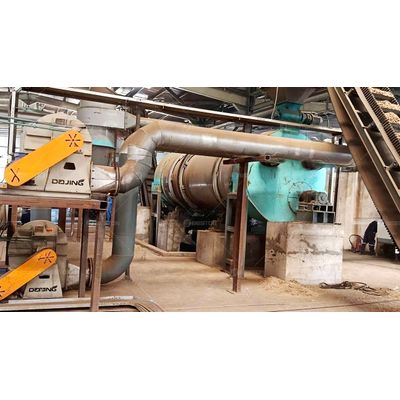

- Home
- Companies
- Beston Group Co., Ltd.
- Articles
- Revolutionizing Sustainability in ...

Revolutionizing Sustainability in Coconut Processing through Charcoal Making Machine
Introduction
Significance of Sustainable Development in Coconut Processing
In the realm of agricultural industries, sustainable practices are paramount. Coconut processing, a vital sector, stands to gain from eco-friendly innovations. This article explores the transformative impact of integrating charcoal making machines into coconut processing plants.
Role of Charcoal Making Machine in Transforming Residues
Charcoal making machines offer a promising solution for dealing with coconut residues. By converting waste into a valuable resource, these machines redefine the sustainability landscape within the coconut processing industry.
Understanding Charcoal Making Machines
Mechanism of Carbonization
-Pyrolysis Process Overview
At the heart of charcoal making machines lies the intricate process of pyrolysis. Through controlled high-temperature decomposition, coconut residues undergo a metamorphosis into charcoal, unlocking their latent energy.
-Transformation of Coconut Residues
Coconut shells and other byproducts, often considered waste, find a new purpose through carbonization. The process not only mitigates environmental concerns but also yields a valuable product with diverse applications.
Types of Charcoal Making Machines
-Continuous Carbonization Systems
Continuous systems offer a seamless and automated approach to carbonization. They ensure a steady output of charcoal, optimizing the production process for larger coconut processing plants. Such kind of charcoal making machine price is often on the high side
-Batch Carbonization Kilns
Batch kilns provide flexibility for smaller operations. These systems allow for a more controlled and customized approach, catering to the specific needs of individual coconut processing facilities.
Advantages of Introducing Charcoal Making Machines
Waste Utilization and Resource Optimization
-Efficient Conversion of Coconut Residues
Charcoal making machines efficiently utilize coconut residues, minimizing waste and contributing to a circular economy. The byproduct, charcoal, emerges as a valuable commodity in high demand.
-Generation of High-Quality Charcoal
The carbonization process ensures the production of high-quality charcoal with enhanced properties. This charcoal can serve multiple purposes, from fuel to agricultural applications.
Energy Efficiency and Environmental Impact
-Sustainable Energy Production
Charcoal, a product of carbonization, serves as a sustainable energy source. Its applications extend to fueling various processes within coconut processing plants, reducing dependence on conventional energy sources.
-Reduction in Greenhouse Gas Emissions
By diverting coconut residues from conventional disposal methods, coconut shell charcoal making machines play a pivotal role in mitigating greenhouse gas emissions. The eco-friendly process aligns with global efforts to combat climate change.
Integration into Coconut Processing Plants
Coordinated Processing and Resource Loop
-Incorporating Charcoal Production in Processing Workflow
Integrating charcoal production seamlessly into coconut processing workflows establishes a resource loop. Coconut residues, once seen as waste, become a valuable input for the production of charcoal, creating a sustainable cycle.
-Circular Economy Benefits
The circular economy concept thrives as coconut processing plants embrace mobile biochar machine. The efficient utilization of resources and the reduction of waste contribute to a closed-loop system, fostering long-term sustainability.
Economic Viability and Long-Term Sustainability
-Cost-Benefit Analysis
Implementing charcoal making machines entails initial investments, but the long-term benefits far outweigh the costs. A thorough cost-benefit analysis reveals the economic viability and potential for substantial returns.
-Diversification of Revenue Streams
Charcoal production introduces a new revenue stream for coconut processing plants. Beyond the primary products, the sale of high-quality charcoal adds a layer of economic diversification, enhancing the overall financial sustainability.
Future Prospects and Conclusion
Potential Innovations and Industry Growth
As technology advances, the integration of smart and innovative features into charcoal making machines holds promise. The coconut processing industry stands on the cusp of significant growth, driven by sustainable practices.
Summing Up the Path Towards Sustainable Coconut Processing
In conclusion, the adoption of charcoal making machines heralds a new era for coconut processing plants. Embracing sustainable practices not only addresses environmental concerns but also positions the industry for long-term viability and growth. The journey towards sustainable coconut processing is both a responsibility and an opportunity for a brighter, eco-friendly future.
